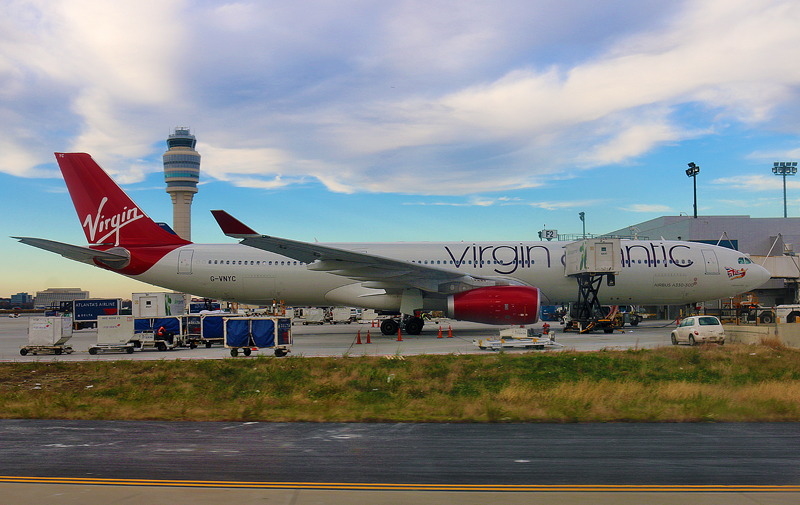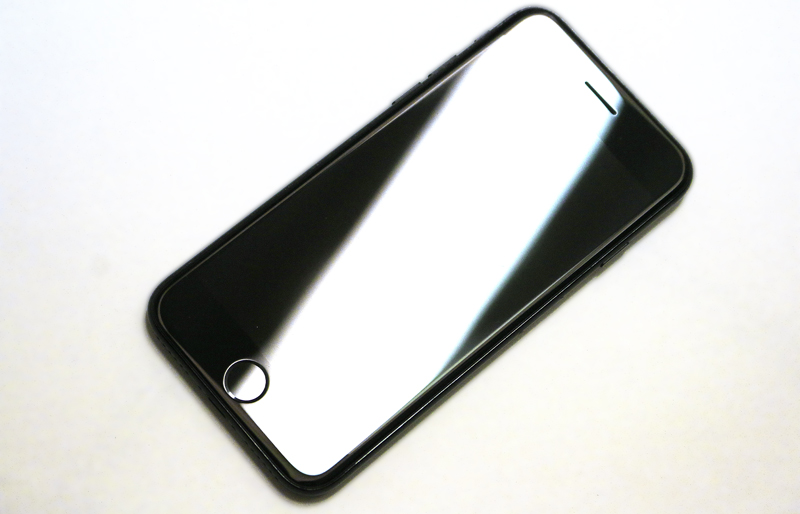After almost two decades of grappling with the decision to allow passengers to place telephone calls using their portable electronic devices and mobile telephones, the Federal Communications Commission of the United States on Tuesday, November 24, 2020 decided to abandon proposing to revise its rules in governing mobile communications services aboard airborne aircraft — which would have permitted inflight voice services and data services via mobile wireless frequencies, subject to certain conditions.
Although guest articles are rarely posted at The Gate, Barry Graham — who is a reader of The Gate — wrote an article which was originally posted at the official Internet web site of Christopher Elliott a couple of years ago; and both he and Barry Graham have granted express permission for the revised and updated article to be posted here at The Gate as a rebuttal to the aforementioned article.
Without further ado, here is the rebuttal from Barry Graham.
Guest Article: Why Telephone Calls Should Be Permitted Aboard Airplanes During Flights

As we read recently in this column, the use of mobile wireless devices, such as smartphones, to make telephone calls and to send messages while in the air, looks like it’s not going to be allowed for a while.
DOT says that 96 percent of travelers were against voice calls on planes while flying when it sought opinions in 2014.
“Our review of the individual comments,” it notes, “suggests that U.S. consumers have come to expect a voice-call-free cabin environment and that they may generally hold a different view from foreign consumers on the issue of voice calls.”
Making voice calls doesn’t mean that you may take your phone out of airplane mode and connect to your nearest tower. Apart from the fact that it’s unlikely you would find a tower in range, this use of cellphones is already illegal. What is possible is the use of onboard Wi-Fi to make voice calls over the internet (VOIP).
Foreign airlines that allow VOIP calls report that customers are happy to have this ability when needed and few complaints have been generated as a result. I myself have used WhatsApp to make calls on airlines that do allow this (such as Virgin Atlantic) and nobody complained because nobody else on the plane could hear me.
It is interesting that DOT claims that so many people are against VOIP calls while flying because I flew extensively when calls were possible using handsets that were provided by the airlines and I never heard any complaints. I also haven’t observed objections when people use their cellphones after landing. Reviewing the comments in a Boston Globe article shows that public opinion may not be overwhelmingly against calls in the sky after all.
The Association of Flight Attendants (AFA) has made it clear it does not want calls allowed on board, and what the DOT doesn’t disclose is how many of the comments received resulted from the AFA’s lobbying efforts among its members. The AFA also lobbied elected officials to include a ban in the FAA Reauthorization bill of last year that eventually passed and caused Wifi calling to be banned.
Thus, the existence of many negative comments, some of which may not be from consumers, proves nothing about whether the majority of flyers want the government or the airlines to decide whether or not they should speak on their phones while in the air.
Delta has stated that should VOIP calls ever be allowed, they would ban them. I have flown a lot with this airline. Not once have I ever been asked for my opinion about this matter even though they send me a survey after most flights. Could it be that they have made this decision based on the fears of their employees? I challenge all airlines to seek opinions of its most frequent flyers.
Don’t get me wrong. Disclosure might not be all bad. It would enable airlines to distinguish themselves for the benefit of those who do want the service. There are many opportunities that this could bring, and there could be separate seats for those that do or don’t want it. Uses include:
- Texting (which is already possible with some carriers onboard).
- Listening to conference calls
- Passing on important information (that is too long or sensitive for an e-mail or text message) to people who will be affected by a flight delay
- Letting the authorities know if G-d forbid there was a terrorist incident that took out the crew

It’s true that people speaking loudly on a phone is annoying. It’s also annoying when fellow passengers speak extremely loudly to each other. In fact there are many things people do that we can choose to find annoying if we want to. A phone is not needed to be obnoxious. Most people are considerate of others. As people have become used to cellphones, their voices have become quieter. When I speak on a cellphone I speak more quietly than I do otherwise, and people around me can hardly hear me.
In general it’s not easy to hear other people speaking on a plane. During a previous flight I was chatting with a fellow passenger next to me (a famous politician) and I could hardly hear him because of the background noise of the plane. So I believe it’s likely people would not be distracted by phones nor that people would have lengthy phone calls, because of the aircraft noise.
Although it could be seen as a reason to select an airline rather than to avoid it, it’s interesting that the DOT is so concerned about this issue that it thinks people should be “warned.” Several years ago, airlines stopped offering meals on many flights. Some airlines even went as far as terminating special meal services, even on flights where they do offer meals. Why is the DOT so concerned about noise, yet not concerned about people flying up to six hours without a meal — especially those people with special dietary needs? Why has the DOT never suggested that airlines disclose the lack of special meal service when a passenger books a flight with meal service?
Do you really want the government to regulate your personal behavior on an airplane? This is even more relevant now as we look forward to a time when masks will be behind us instead of in front of us on our faces. Do you want the Government to mandate the wearing of masks and then have to wait for them to reverse the ruling, possibly long after the emergency is over? The decision should be made by the airlines as it is now, so that it can be amended in real time.
Regulating mobile phone use is as obtrusive as making someone turn off a PC because a neighboring passenger is especially sensitive to light, when they could simply ask them to turn down the brightness. Should it be a crime to pass wind while in the cabin? People don’t need a law to know how to behave toward others.
Let us know if you don’t want regulations governing decent behavior to others and you want to be able to benefit from technology in a way that is allowed by so many other countries.
Summary

Barry Graham is a fan of The Gate and has been a road warrior for greater than 30 years. He is married with six children and is an active volunteer for several causes including for his community and for consumer advocacy. For his day job he sells computer systems and is looking forward to the time that he can do that face to face again. He is originally from the United Kingdom and has been living in the United States for nearly half his life.
When I give an opinion in an article — even when I am adamant about a point of view pertaining to a topic — I try to keep an open mind when opposing views are presented to me, as that is one way in which I continue to learn. After reading the argument posted by Barry, I am now open to perhaps allowing passengers aboard airplanes to use electronic voice communications for a trial period to see if it actually works and whether the concerns of those who are opposed to it are verified.
Other articles at The Gate which pertain to telephone calls aboard airplanes include:
- Forget Mobile Telephone Calls Aboard Airplanes For the Foreseeable Future, According to the Federal Communications Commission of the United States
- Stupid Tip of the Day: Do Not Talk on the Telephone After Airplane Doors Closed — Otherwise…
- Should an Emergency Telephone Call Delay a Flight?
- Poll: Are You In Favor or Against Telephone Calls During Flights?
- Telephone Calls: Should They Be Allowed During Flight?
- Telephone Calls: Should They Be Allowed During Flight? It Could Happen Soon…
- Use a Mobile Telephone and Risk Losing Elite Status?
- Airline Passenger Arrested For Refusing to Turn Off Mobile Telephone
All photographs ©2015, ©2017, ©2018, and ©2019 by Brian Cohen.

